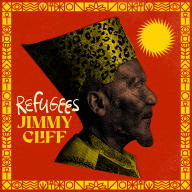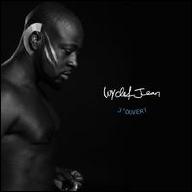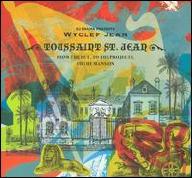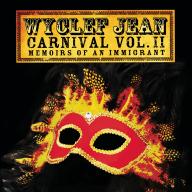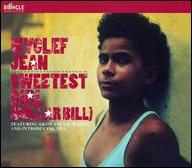The son of a minister, Nelust Wyclef Jean was born in Croix-des-Bouquets, Haiti, on October 17, 1969. When he was nine, his family moved to Brooklyn's Marlborough projects. By his teenage years, Wyclef had moved to New Jersey, taken up guitar, and begun studying jazz through his high school's music department. In 1987, he also joined a rap group with his cousin Prakazrel Michel (aka Pras) and Michel's high school classmate Lauryn Hill. Initially calling themselves the Tranzlator Crew, they evolved into the Fugees, a name taken from slang for Haitian refugees. The trio signed with the Columbia-affiliated Ruffhouse label in 1993 and released their debut album, Blunted on Reality, the following year. It attracted little notice -- it peaked at only number 62 on Billboard's R&B/Hip-Hop chart -- thanks to an inappropriate hardcore stance that the group wore like an ill-fitting suit. But the Fugees hit their stride on the follow-up, The Score, an eclectic, bohemian masterpiece that sounded like nothing else in 1996. Thanks to hits like "Fu-Gee-La" and "Killing Me Softly," The Score became a chart-topping phenomenon. With sales of over six million copies, it still ranks as one of the biggest-selling rap albums of all time.
Wyclef was the first Fugee to declare plans for a solo project, setting to work soon after the group completed its supporting tours. Released in the summer of 1997, The Carnival was even more musically ambitious than The Score. Its roster of guests included not only the remainder of the Fugees, but also Wyclef's siblings (who performed together in the duo Melky Sedeck), Cuban legend Celia Cruz, and New Orleans funk mainstays the Neville Brothers. The breadth of his ambition was further in evidence on the album's two hit singles; "We Trying to Stay Alive" recast Bee Gees' signature disco tune as a ghetto empowerment anthem, and the Grammy-nominated "Gone 'til November" was recorded with part of the New York Philharmonic Orchestra. Those two songs helped push The Carnival into a Top 20, triple-platinum showing. Wyclef subsequently stepped up his outside work for other artists. He collaborated as a producer, songwriter, and/or remixer with a diverse list of artists, including Destiny's Child ("No No No"), Whitney Houston (the title track of My Love Is Your Love), Bounty Killer, Cypress Hill, Michael Jackson, Santana ("Maria Maria"), Mick Jagger, and Canibus. He also served as Canibus' manager for a short time.
By the time Wyclef began work on his second solo album, rumors were flying about tension between individual Fugees, and despite their denials, the fact that no follow-up to The Score was in sight seemed to lend credence to all the speculation. Although Wyclef had previously announced he would put off his sophomore effort until after the next Fugees album, he was well into the project by early 2000, giving an early release of the anti-police brutality track "Diallo" (with guest vocals from Senegalese superstar Youssou N'Dour) via the Internet. The full album, titled The Ecleftic: 2 Sides II a Book, was released toward the end of the summer and entered the Billboard 200 at number nine. Besides N'Dour, guests this time around included Mary J. Blige (on the Grammy-nominated duet "911"), Earth, Wind Fire, Kenny Rogers, and even wrestling star the Rock. Clef also threw in a left-field cover of Pink Floyd's "Wish You Were Here." This time around, some critics suggested that Wyclef's sprawling ambitions were growing messy, but the record went platinum nonetheless.
Still with no Fugees reunion in sight, Wyclef began preparing his third solo album, Masquerade, in 2001. He also appeared in the Jamaican gangster flick Shottas, and suffered the death of his father in a home accident. Masquerade was released in the summer of 2002, and in addition to the usual worldbeat fusions, it found Wyclef reworking songs by Bob Dylan and Frankie Valli, and featured guest shots from Tom Jones and Miri Ben-Ari. Masquerade entered the chart at number six, proving that Wyclef's freewheeling approach still held quite a bit of appeal. One year later, he returned with The Preacher's Son, and also released an album of traditional Haitian Creole music, Welcome to Haiti: Creole 101. A couple years later, Shakira sought him to co-produce, co-write, and appear on "Hips Don't Lie," a global hit that topped the Billboard Hot 100 and the pop charts in several other territories, including the U.K., Australia, and France. It was easily Wyclef's most successful collaboration.
Wyclef's solo debut got its sequel in 2007 when Carnival, Vol. II: Memoirs of an Immigrant hit the shelves. The album had a diverse and lengthy guest list, ranging from Paul Simon to Sizzla. Its "Sweetest Girl (Dollar Bill)" became his biggest single as a lead artist in nearly a decade -- a platinum-certified, number 12 pop hit. Two years later he returned with Toussaint St. Jean: From the Hut, To the Projects, To the Mansion, which topped out at number 171 pop and number 36 R&B/hip-hop. Work on his seventh proper full-length began shortly thereafter, though it took many years for the album to materialize. The EPs If I Were President: My Haitian Experience and J'ouvert, along with scattered non-album singles and collaborations with dance acts (the Knocks, Gorgon City) and rappers (including Young Thug), all preceded 2017's Carnival III: The Fall and Rise of a Refugee, distributed by Sony via the independent Heads Music. The release coincided with the 20th anniversary of Jean's debut and featured guest performances from Emeli Sandé and LunchMoney Lewis. ~ Steve Huey, Rovi


